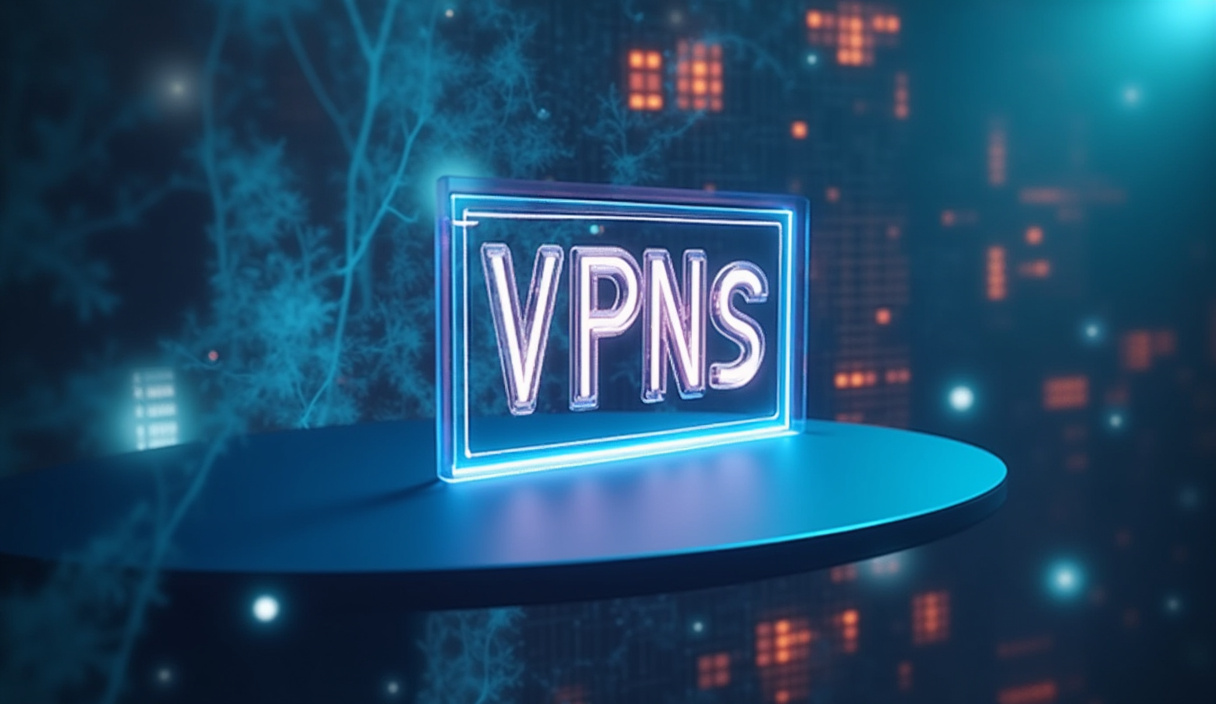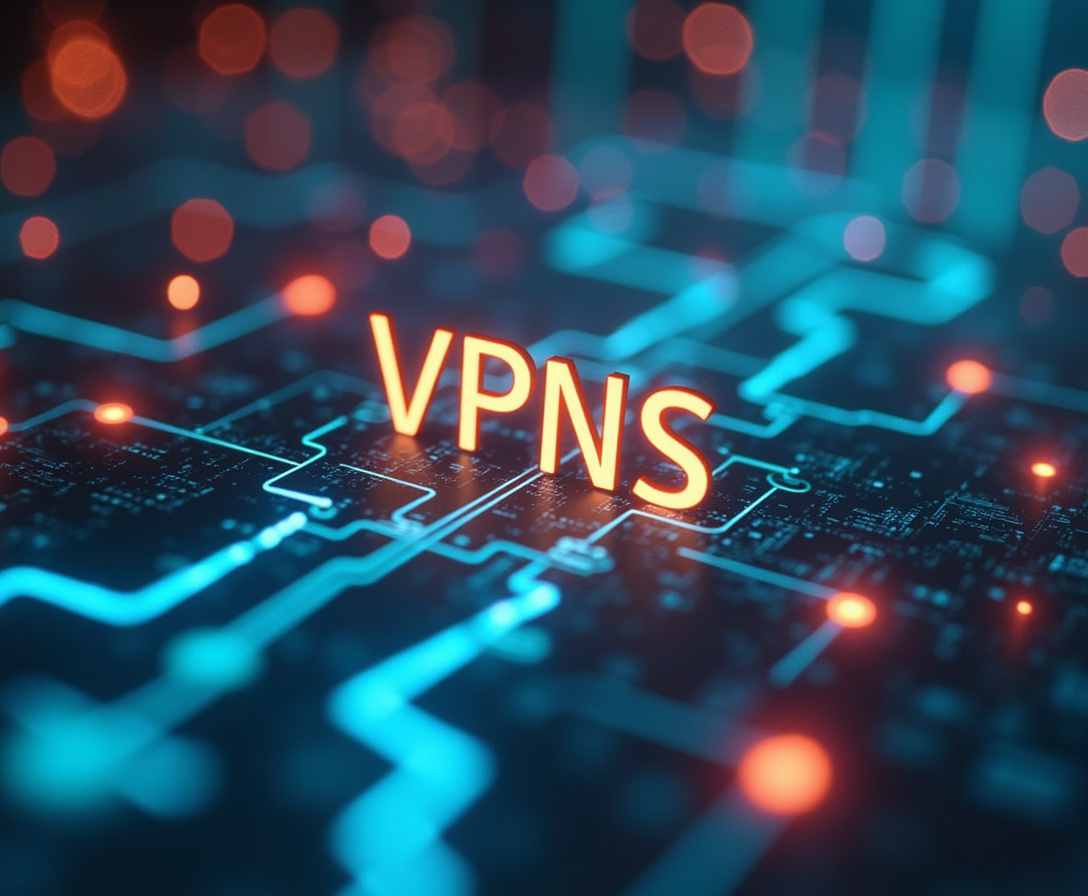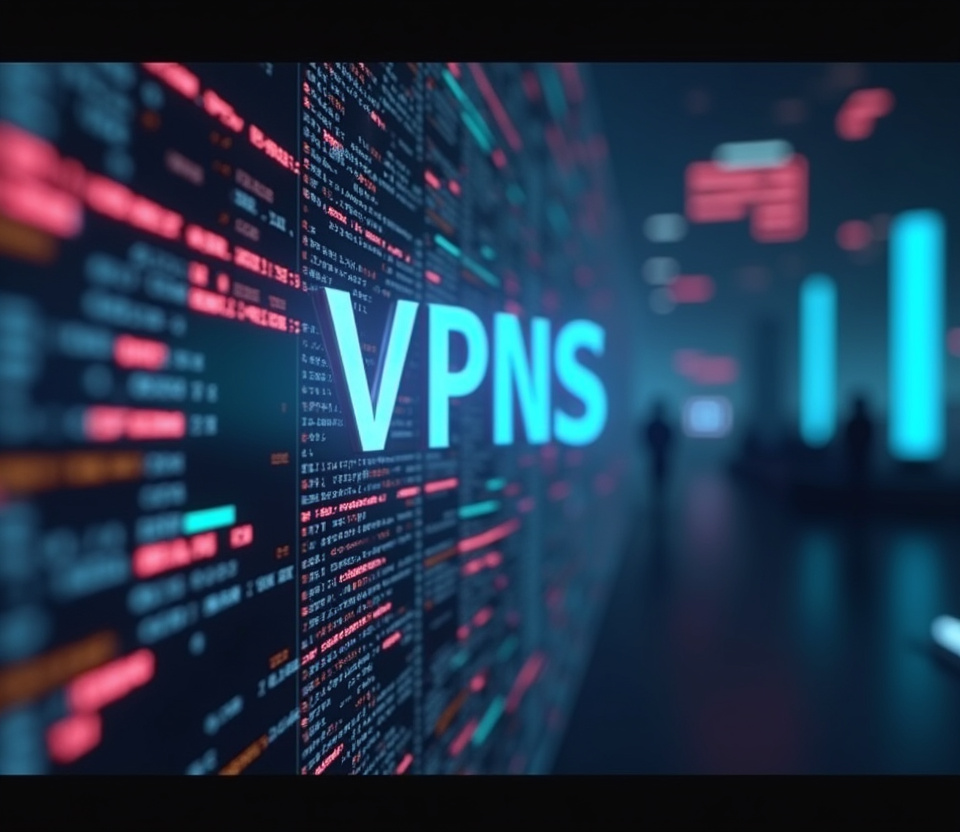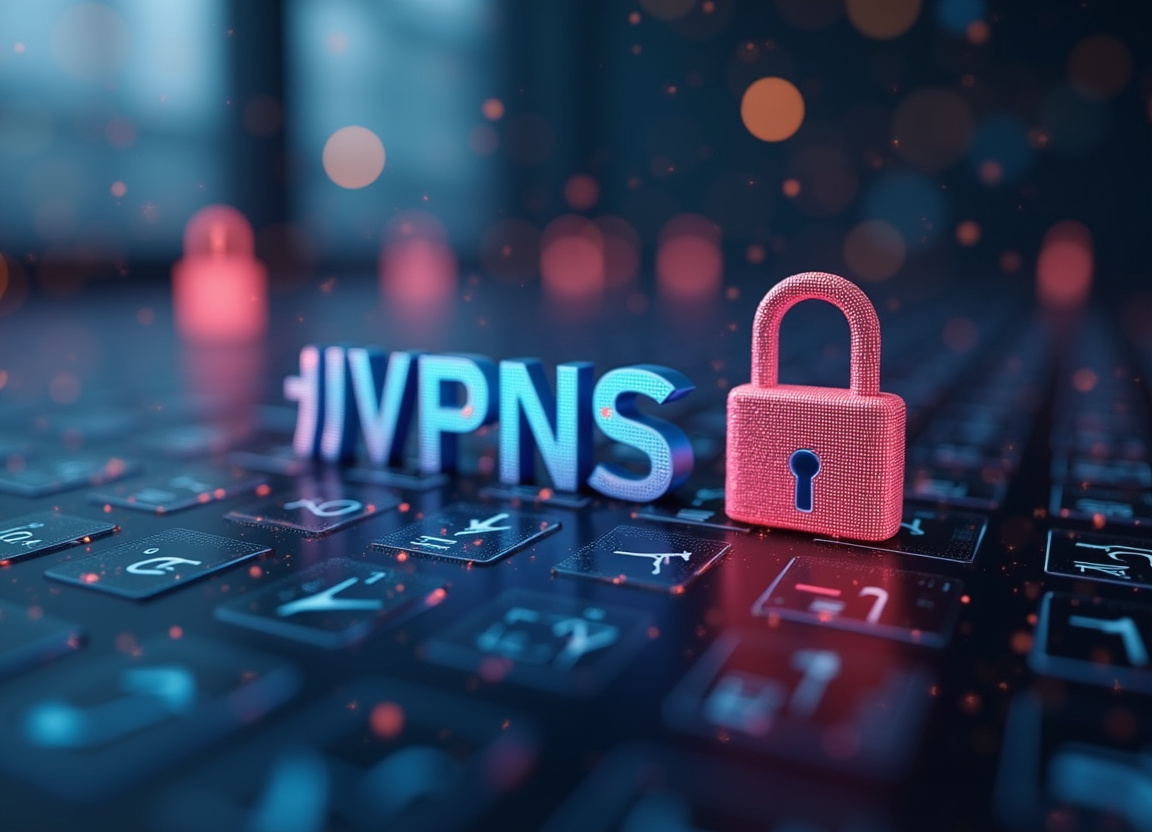VPNs for Creative Agencies: Protecting Intellectual Property

Table of Contents
- VPNs for Creative Agencies: Fortifying Intellectual Property in a Digital Landscape
- Understanding the Threats: Why Creative Agencies Need VPNs
- Implementing VPNs: Practical Steps for Creative Agencies
- VPNs for Services: Enhancing Security and Privacy for Online Platforms
- The Future of VPNs: Evolution in Subscription Services
VPNs for Creative Agencies: Fortifying Intellectual Property in a Digital Landscape
In the dynamic and fiercely competitive realm of creative agencies, intellectual property (IP) is the lifeblood of innovation and the cornerstone of competitive advantage. Creative agencies constantly churn out novel ideas, groundbreaking designs, and compelling marketing campaigns. The protection of this intellectual property is paramount, as its unauthorized use or disclosure can have devastating consequences, ranging from lost revenue and damage to reputation to legal battles and the erosion of market share.
The rise of remote work, cloud-based collaboration tools, and increasing cyber threats has amplified the complexity of safeguarding sensitive creative assets. This is where robust security measures, particularly the deployment of a well-configured creative agency VPN, become indispensable. A Virtual Private Network (VPN) extends a private network across a public network, enabling users to send and receive data as if their devices were directly connected to the private network.
This creates a secure, encrypted tunnel for all internet traffic, effectively shielding sensitive data from prying eyes and malicious actors. For creative agencies, a VPN is not merely an optional tool but a critical component of their overall security architecture, ensuring the confidentiality, integrity, and availability of their intellectual property. By implementing a creative agency VPN, businesses can elevate their intellectual property security, enhance project protection, ensure confidentiality, and foster a culture of innovation, solidifying their position as leaders in their respective industries.
Agencies face numerous challenges in their mission of intellectual property security. One of the primary threats stems from the increased reliance on remote work. With creative teams distributed across geographic locations, sensitive project files, design drafts, and marketing strategies are often accessed and shared over potentially insecure home networks or public Wi-Fi hotspots.
These networks are susceptible to eavesdropping, man-in-the-middle attacks, and malware infections, creating vulnerabilities that can expose valuable intellectual property to unauthorized access. Imagine a scenario where a graphic designer working remotely from a coffee shop unknowingly connects to a rogue Wi-Fi hotspot set up by a cybercriminal. This rogue hotspot intercepts all internet traffic, allowing the attacker to steal sensitive design files, client credentials, and confidential project details.
Similarly, a marketing strategist accessing client data from their unsecured home network could inadvertently expose sensitive information to malware infections or unauthorized access from other devices on the network. These scenarios highlight the significant risks associated with remote work and the importance of implementing a creative agency VPN to mitigate these vulnerabilities. The risks associated with file sharing and collaboration are also substantial.
Furthermore, the collaborative nature of creative projects necessitates the use of various online platforms for file sharing, communication, and project management. While these platforms enhance productivity and streamline workflows, they also introduce inherent security risks. Data breaches at these platforms can compromise sensitive client data, creative assets, and confidential project details.
For instance, a popular cloud storage provider could experience a security breach, exposing millions of user accounts and files to unauthorized access. If a creative agency stores sensitive client data or project files on this compromised platform, their intellectual property could be exposed to the public, leading to significant financial losses, reputational damage, and legal liabilities. In addition, the use of unsecured email channels for communication and file sharing can also expose sensitive information to interception and malware attacks.
Cybercriminals frequently target email accounts to steal sensitive client data, financial information, and intellectual property. Therefore, agencies need to use a VPN for business to protect their communications, data, and digital assets. In addition, the creative industry is a prime target for cyber espionage and intellectual property theft.
Competitors may attempt to gain an illegal competitive edge by stealing or reverse-engineering a creative agency's innovative ideas, designs, and marketing strategies. Hackers, driven by financial or political motives, may target creative agencies to steal sensitive client data or disrupt their operations. Consider a scenario where a competitor hires a hacker to infiltrate a rival creative agency's network and steal their latest marketing campaign strategy.
This stolen strategy could then be used to launch a competing campaign, undermining the agency's efforts and causing significant financial losses. Similarly, a nation-state actor could target a creative agency to steal sensitive client data for political or espionage purposes. These are just some of the real-world threats that creative agencies face, highlighting the importance of robust security measures, including the implementation of a creative agency VPN.
Therefore, adopting a VPN for business is a robust shield against these challenges, defending assets and fostering a safe environment for creative innovation. The VPN is also a vital tool for fostering trust among clients.
Understanding the Threats: Why Creative Agencies Need VPNs
The core function of a creative agency VPN lies in encrypting all internet traffic, rendering it unreadable to unauthorized parties. This encryption process involves converting data into a scrambled format using complex algorithms, ensuring that even if intercepted, the data cannot be deciphered without the correct decryption key. Think of it like sending a letter in code.
Even if someone intercepts the letter, they can't understand the message without the codebook. The VPN acts as that secure codebook, ensuring only the intended recipient can read the information. By encrypting traffic, a VPN effectively shields sensitive data from eavesdropping, man-in-the-middle attacks, and other forms of cyber intrusion.
This is particularly crucial when creative teams are working remotely, as it protects their online activities and data transmissions from the vulnerabilities of unsecured networks. Imagine a designer uploading a high-resolution image file to a client's server while connected to a public Wi-Fi network. Without a VPN, this data is transmitted in plain text and could be intercepted by a hacker lurking on the same network.
However, with a VPN, the data is encrypted, making it virtually impossible for the hacker to decipher the contents of the file. Beyond encryption, a creative agency VPN also masks the user's IP address, effectively concealing their true location and identity. This anonymity makes it significantly more difficult for hackers to track online activities, identify network vulnerabilities, and launch targeted attacks.
This IP masking feature adds an additional layer of security, safeguarding sensitive creative assets from being tracked or compromised by sophisticated cyber threats. It's akin to wearing a mask in public. People can't immediately identify you based on your appearance, making it more difficult to follow you or learn about your identity.
With a masked IP address, creative agency employees can browse the web, access client portals, and engage in online collaboration without fear of being tracked or targeted by cybercriminals. It adds a layer of privacy and reduces the risk of falling victim to phishing scams, malware attacks, or other online threats. One of the most significant benefits of a creative agency VPN is its ability to provide secure access to internal resources, such as file servers, databases, and project management systems.
By establishing a secure, encrypted tunnel between remote users and the agency's internal network, a VPN ensures that only authorized personnel can access confidential data. This secure access control prevents unauthorized users from gaining access to sensitive information, mitigating the risk of data breaches and intellectual property theft. For example, consider a scenario where a project manager needs to access sensitive client data stored on the agency's internal file server.
With a VPN, the project manager can securely connect to the file server from their remote location, authenticate their identity, and access the necessary data without exposing it to unauthorized access. This secure access control ensures that only authorized personnel can view, modify, or download sensitive files, reducing the risk of insider threats or data leakage. The VPN enforces strict authentication protocols, verifying the identities of users attempting to connect to the internal network.
This multi-layered security approach ensures that only authorized individuals can access sensitive resources, protecting the agency's intellectual property from insider threats and external intrusions. Multi-factor authentication (MFA), such as requiring a password and a one-time code sent to a mobile device, can be implemented in conjunction with the VPN to provide an extra layer of security. This additional layer of protection makes it significantly more difficult for unauthorized users to gain access to the agency's internal network, even if they have obtained a valid username and password.
By combining strong authentication protocols with encryption and secure access control, a creative agency VPN creates a comprehensive security architecture that effectively protects sensitive data from both internal and external threats. Project protection extends to various collaborative workflows, ensuring that sensitive data is securely transmitted and stored throughout the project lifecycle. Creative agencies often collaborate with clients, freelancers, and external partners on projects, necessitating the secure exchange of confidential information.
It is important to secure the exchange of sensitive project related information. A creative agency VPN facilitates secure file sharing, enabling teams to transmit sensitive design files, marketing strategies, and client data without exposing them to the risks of interception or unauthorized access. By ensuring that all data transmissions are encrypted and authenticated, a VPN creates a safe environment for collaboration, fostering trust and confidence among team members and external partners.
The VPN secures communication channels, such as email, messaging apps, and video conferencing platforms, safeguarding sensitive conversations and intellectual property discussions. This secure communication ensures that confidential project details, client feedback, and strategic insights are protected from unauthorized access, maintaining the confidentiality of critical business communications.
Implementing VPNs: Practical Steps for Creative Agencies
Confidentiality is paramount in creative agencies, where sensitive client information, innovative ideas, and competitive strategies are constantly at risk. A creative agency VPN plays a critical role in ensuring confidentiality by safeguarding sensitive data throughout its lifecycle, from its creation to its storage and transmission. Think of it like a vault protecting valuable assets.
The VPN acts as that vault, shielding sensitive information from unauthorized access and ensuring that it remains confidential throughout its journey. By encrypting all data transmissions, a VPN prevents unauthorized parties from intercepting or accessing sensitive information, ensuring that confidential client data, creative assets, and strategic insights remain protected. This encryption process renders the data unreadable to eavesdroppers, preventing them from compromising the agency's confidentiality commitments.
Imagine a scenario where a creative agency is developing a new advertising campaign for a major client. The campaign strategy, design concepts, and target audience demographics are all highly sensitive information that must be kept confidential to prevent competitors from gaining an advantage. A VPN ensures that all communications between the agency and the client, as well as internal discussions among the creative team, are encrypted and protected from unauthorized access.
A VPN also ensures secure data storage by protecting sensitive files and databases from unauthorized access. By implementing strong encryption and access control measures, a VPN restricts access to sensitive data to authorized personnel only, preventing data breaches and internal leaks. Consider the scenario where an agency stores all its client contracts, financial records, and intellectual property documents on a centralized file server.
Without proper security measures, this file server could be vulnerable to unauthorized access, either from external hackers or disgruntled employees. A VPN, coupled with robust access control policies, ensures that only authorized personnel can access these sensitive files, preventing data breaches and internal leaks. This secure data storage is crucial for maintaining client trust and protecting the agency's competitive advantage.
Furthermore, a VPN facilitates compliance with data privacy regulations by ensuring that sensitive data is handled in accordance with legal requirements. This is particularly important for creative agencies that handle personal data from clients and customers, as non-compliance with data privacy regulations can result in hefty financial penalties and reputational damage. Regulations like GDPR (General Data Protection Regulation) and CCPA (California Consumer Privacy Act) impose strict requirements on how businesses collect, process, and store personal data.
A VPN helps agencies comply with these regulations by ensuring that all personal data is encrypted and protected from unauthorized access. It also helps agencies maintain records of data processing activities, which are required under GDPR. This compliance with data privacy regulations not only protects individuals' privacy but also enhances the agency's reputation and builds trust with clients.
Beyond these core functionalities, a well-configured creative agency VPN can also offer additional features that enhance confidentiality and security. These features include: a kill switch, which automatically disconnects the user from the internet if the VPN connection drops, preventing unencrypted data from being transmitted; DNS leak protection, which prevents DNS requests from being sent to the user's ISP, protecting their online activity from being tracked; and a strict no-logs policy, meaning that the VPN provider does not track or store any user data, ensuring complete anonymity. These additional features provide an extra layer of security and privacy, further enhancing the confidentiality of the agency's operations.
Protecting client data means protecting yourself. In essence, a creative agency VPN is not just a security tool but a strategic asset that helps agencies maintain confidentiality, comply with data privacy regulations, and build trust with clients. By implementing a robust VPN solution, creative agencies can create a secure environment for innovation, collaboration, and business growth.
The confidentiality also extends to the clients sensitive data.
VPNs for Services: Enhancing Security and Privacy for Online Platforms
Beyond the fundamental aspects of security and confidentiality, a creative agency VPN fosters a culture of innovation by providing a safe and secure environment for experimentation and collaboration. When creative teams feel confident that their ideas and intellectual property are protected, they are more likely to take risks, explore new concepts, and push the boundaries of creativity. This freedom to innovate is essential for staying ahead of the competition and developing groundbreaking solutions for clients.
Imagine a creative team brainstorming new marketing strategies for a client. Knowing that their ideas are protected by a VPN, team members are more likely to share unconventional concepts, challenge existing paradigms, and engage in open and honest discussions. This safe and secure environment encourages experimentation and fosters a culture of innovation, leading to the development of truly unique and impactful marketing campaigns.
Furthermore, a creative agency VPN facilitates seamless collaboration among remote teams, enabling them to work together effectively regardless of their location. By providing secure access to internal resources and communication channels, a VPN ensures that remote teams can collaborate on projects in real-time, share files securely, and communicate effectively without compromising confidentiality. This seamless collaboration is essential for maintaining productivity and delivering high-quality results, especially in today's increasingly distributed work environment.
Consider a scenario where a graphic designer, a copywriter, and a marketing strategist are working remotely on a new website design project. A VPN enables them Collaborate on projects in real-time, share design mockups, and exchange feedback securely, as if they were working in the same office. This seamless collaboration ensures that the project progresses smoothly and efficiently, resulting in a high -quality website design that meets the client's needs.
Moreover, a VPN enables creative agencies to expand their talent pool by hiring remote workers from around the world. By removing geographical barriers, a VPN allows agencies to access a wider range of skills and expertise, enabling them to assemble the best possible team for each project. This access to a global talent pool can give agencies a significant competitive advantage, allowing them to deliver innovative and creative solutions that set them apart from the competition.
Imagine a small creative agency that wants to develop a sophisticated mobile app for a client. With a VPN, they can hire freelance developers from around the world, accessing the specialized skills and experience they need to create a high -quality app. This access to a global talent pool enables the small agency to compete with larger firms, delivering innovative solutions that meet their client's needs.
All collaboration can happen within the VPN. In addition to fostering innovation and collaboration, a creative agency VPN can also enhance productivity by streamlining workflows and reducing downtime. By providing secure and reliable access to internal resources, a VPN ensures that employees can work efficiently and effectively, regardless of their location.
The VPN also helps reduce the risk of cyber attacks and data breaches, which can cause significant downtime and disrupt business operations. Reduced risk is of highest importance when choosing the business VPN solution. Consider a scenario where a creative agency's network is hit by a ransomware attack.
Without a VPN, the attack could cripple the agency's operations, preventing employees from accessing critical files and systems. However, with a VPN and robust security measures in place, the agency may be able to contain the attack and minimize the damage, ensuring that employees can continue working with minimal disruption. This enhanced productivity and reduced downtime can save the agency time and money, allowing them to focus on delivering high -quality services to their clients.
In conclusion, a creative agency VPN is not just a security tool but a strategic enabler that fosters innovation, facilitates collaboration, enhances productivity, and drives business growth. By providing a safe and secure environment for creativity and collaboration, a VPN empowers creative agencies to push the boundaries of innovation and deliver groundbreaking solutions to their clients. The security of VPN gives the agency and clients the necessary tool to grow.
The Future of VPNs: Evolution in Subscription Services
In summary, the deployment of a creative agency VPN represents a crucial investment in intellectual property security, project protection, and confidentiality. It's a proactive step that safeguards valuable assets and fosters a culture of innovation, setting the stage for sustained success in a competitive landscape. By taking the necessary measures to implement a robust VPN solution, creative agencies can demonstrate their commitment to protecting client data and maintaining the highest standards of security, building trust and solidifying their reputation as reliable and trustworthy partners.
Remember, a VPN is not just a piece of software, it's a strategic decision that underpins your agency's security posture. The ultimate goal is to give peace of mind to clients and staff alike. The benefits of integrating a VPN into the daily operations of a creative agency extend far beyond simple data encryption.
It's about creating a secure ecosystem where creativity can thrive, collaboration can flourish, and client relationships can be nurtured with confidence. In today's digital age, where cyber threats are constantly evolving, and data breaches are becoming increasingly common, a VPN is no longer a luxury, but a necessity. It's an essential tool for protecting your agency's intellectual property, maintaining client confidentiality, and fostering a culture of innovation.
Selecting the right VPN service for your creative agency is a critical decision that requires careful consideration. In conclusion, a creative agency VPN should be viewed as a strategic investment that protects valuable intellectual property, enhances project security, ensures confidentiality, and fosters a culture of innovation. Choosing the right VPN and implementing it correctly will allow the agency to demonstrate its commitment to security, build trust with clients, and ultimately gain a competitive advantage in the marketplace.
Consider the long-term benefits of investing in a reliable VPN solution. The cost of a data breach or intellectual property theft can be far greater than the cost of a VPN subscription. The reputational damage, legal fees, and financial losses associated with a security incident can cripple a creative agency, especially a smaller one.
A VPN proactively mitigates these risks, providing peace of mind and allowing you to focus on growing your business. Investing in the right VPN is more than a technical upgrade; it's a testament to your agency's commitment to protecting its most valuable assets and building trust with clients. It is a strategic move that can lead to greater innovation, more effective collaboration, and ultimately, greater success.
Embracing a secure-first mindset, with a creative agency VPN as a cornerstone, allows you to navigate the digital landscape with confidence, ensuring that your creative endeavors are protected and your agency's reputation remains untarnished. By prioritizing security, creative agencies can unlock their full potential and achieve sustainable success in an increasingly competitive marketplace. It is one of the main tools to accomplish the goals of a creative agency.
Finally, a good VPN demonstrates to clients your commitment to security, encouraging stronger relationships of trust based on the security of their data with you. Stronger security measures, like adopting and using creative agency VPNs will give peace of mind for yourself and your clients.
Stay Updated
Get the latest VPN news, tips, and exclusive deals to your inbox.




